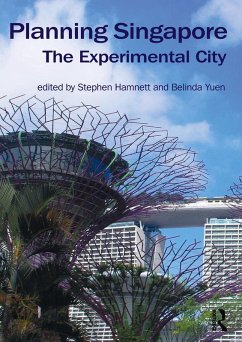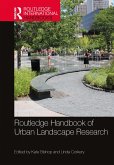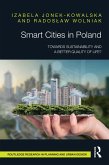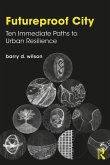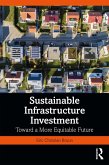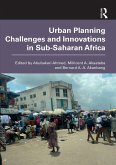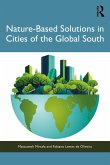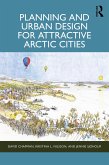In Planning Singapore: The Experimental City, Stephen Hamnett and Belinda Yuen have brought together a set of chapters on Singapore's planning achievements, aspirations and challenges, which are united in their focus on what might happen next in the planning of the island-state. Chapters range over Singapore's planning system, innovation and future economy, housing, biodiversity, water and waste, climate change, transport, and the potential transferability of Singapore's planning knowledge. A key question is whether the planning approaches, which have served Singapore so well until now, will suffice to meet the emerging challenges of a changing global economy, demographic shifts, new technologies and the existential threat of climate change. Singapore as a global city is becoming more unequal and more diverse. This has the potential to weaken the social compact which has largely existed since independence and to undermine the social resilience undoubtedly needed to cope with the shocks and disruptions of the twenty-first century. The book concludes, however, that Singapore is better-placed than most to respond to the challenges which it will certainly face thanks to its outstanding systems of planning and implementation, a proven capacity to experiment and a highly developed ability to adapt quickly, purposefully and pragmatically to changing circumstances.
Dieser Download kann aus rechtlichen Gründen nur mit Rechnungsadresse in A, B, BG, CY, CZ, D, DK, EW, E, FIN, F, GR, HR, H, IRL, I, LT, L, LR, M, NL, PL, P, R, S, SLO, SK ausgeliefert werden.
Dean Forbes
Matthew Flinders Distinguished Professor Emeritus
Flinders University, Adelaide, South Australia
Now two centuries since Raffles planted the British flag on the site of the ancient kingdom of Temasek, we know for certain that his instincts about the island's potential greatness were correct. The experts that Hamnett and Yuen have assembled in Planning Singapore: The Experimental City enable us to understand how Singapore's unique and highly integrated planning and governance approach, with its experimental qualities, will guide its future.
Christopher Silver
Professor
Urban and Regional Planning
University of Florida, Gainesville
This is an important reference point for urban planning students and researchers alike. It tells much of the Singapore story so far in a concise and informative way but it also includes important elements of reflection on and criticism of its meaning for urban planning elsewhere and signposts some of the likely future twists and turns in this remarkable tale.
Nicholas A. Phelps, Urban Policy and Research, November 2019

